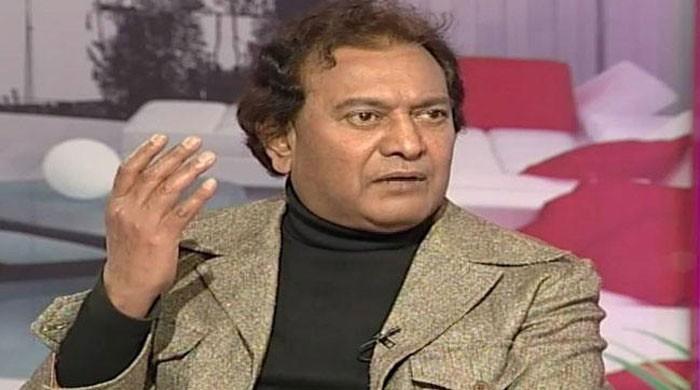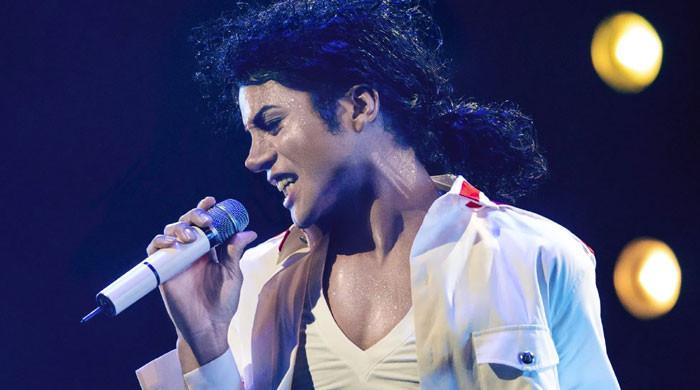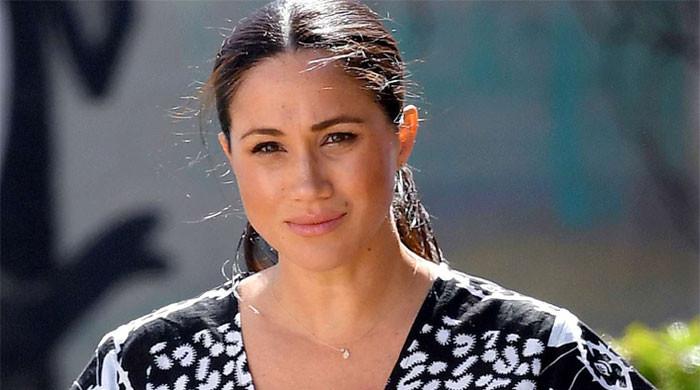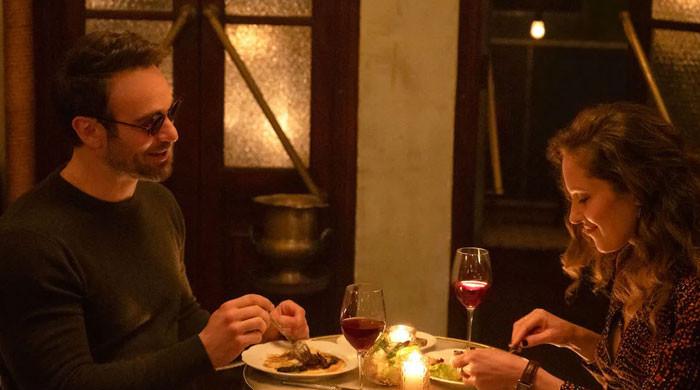A Nayyar — ‘Tere sang dosti, hum na chorain kabhi’
It is hardly possible that there is a birthday party going on and no one is singing, ‘’Jungle me mangal tere hi dam se’. It also remains a slim possibility that you have never...
November 14, 2016

It is hardly possible that there is a birthday party going on and no one is singing, ‘’Jungle me mangal tere hi dam se’. It also remains a slim possibility that you have never dedicated ‘’Oh humdum oh saathi, mujhay teri dosti pe naaz hai’’ to your best friend. When one is in love for the first time, just think of ‘’pyar tu ek din hona tha, ho gaya’’, when mind needs to rebel, ‘’kuch bhi karo yeh rokain, harr harr baat pe tokain’’ is the best answer and above all, the best way to express depression was, is and always remain',’main tu jala, aisa jeevan bhar, kia koi deep jala hoga’’.
These compositions by A.Nayyar were what I grew up listening to. By growing up, I literally mean it as I was born the very same day Nadeem, Mumtaz, Ghulam Mohiuddin starrer, ‘Sharmilee’ was released. It had the first song A.Nayyar recorded for a film, though released later, and the last hit song the legendary playback singer Ahmed Rushdi rendered for superstar, Nadeem. Both of Rushdi’s songs, composed by the evergreen Karim Shahabuddin, are still soothing to ears, but ‘ji rahay hain hum tanha, aur tera gham tanha’ remains a masterpiece. The tragedy-filled lyrics, the yoodling, and the use of violin can still make you weep. Nayyar Sahib, once recalled a meeting with the great Kishore Kumar when ‘the original yoodler’ was surprised as to how his prodigy manages to ‘yoodle’ in sad songs.
Arthur Nayyar, popularly known as A.Nayyar, was the leading Pakistani playback singer, from mid 70s till early 90s. Born in 1950, he belonged to the Christian community which has produced singers like S.B.John, Saleem Raza and Irene Parveen. Nayyar was a trained teacher before he took up singing as a profession. He started his career as a non-regular at Pakistan Television but ended up as a regular in films. He has been a voice to Waheed Murad, Muhammad Ali, Nadeem, Shahid as well as actors decades junior to him; Shaan, Faisal and Ayaz Naik.
The playback singing of Pakistan for a good 20 years was shouldered by Ahmed Rushdi. Till 1976, Rushdi Sahib was the automatic choice for songs of all types. Mehdi Hasan was unmatchable with slow numbers, while his fast numbers were mediocre sans ‘Kabhi main sochta hoon’. Rushdi could alter his voice for heroes, got into the right mood and was what the ‘director’ ordered. When he departed the music scene due to ill health, the vaccum was filled by A.Nayyar. He was not ‘altering his voice’ type, but the freshness he brought with his songs, covered it all. With new faces like Ghulam Mohiuddin, Faisal, Ayaz Naik, Ismail Shah and Javed Shaikh coming onto the scene, Nayyar was the much-needed change.
Alamgir and Muhammad Ali Shyaki ruled the music scene at TV in the 80s, Nayyar ruled the film space. He was at ease with both fast and slow numbers. It was a quality that could only be found in songs of Ahmed Rushdi and Akhlaq Ahmed. Be it the peppy numbers like ‘’hum mastaanay deewanay kisi ki hamain nahi parva’’ and ‘’dunya ek play hai main hoon playboy’’or slow songs like ‘’tanhaiyon me dhal jayaingay’’ or ‘’jaanay kyun log gham ka sog manaatay hain’’, Nayyar was at his best.
He was the voice for nearly every star during those days. When Nadeem had Akhlaq Ahmed fixed for himself, Nayyar was the voice for all others. In Lazawaal’s ‘lazawaal’ song ‘Aap apni misaal hota hai’, Nayyar lent his voice to Ghulam Mohiuddin as well as Javed Shaikh while Akhlaq was the lead voice with Naheed Akhtar also sharing the microphone. Filmstar Faisal Rehman, for whom Nayyar sang in Beqarar, Love Story, Yeh Zamana aur Hai and Aandhi, credits a big part of his success to the legend. The last song on Waheed Murad, ‘’main hoon pyar ka deewana’’ from Zalzala, released three years after his death was also credited to late A.Nayyar.
The best moment came in early 1991, when I was in school. Aamir Khan-Madhuri Dixit starrer movie, ‘Deewana Mujh sa nahi’ just got released. It was a frame-to-frame copy of Pakistani super hit ‘Beqarar’, starring Babra Sharif and Faisal. The movie, originally released in 1986 and watched by me on VHS in Jeddah, Saudi Arabia, was shown on NTM and we were all shocked to notice the similarities. Imagine with social media back then, what havoc could have been created. The story, camera angles and music, all were shamelessly copied. Be it the way both heroes rode their respective motorcycles in the climax, with bandage on the same place on their foreheads or the spectacles on Aamir Khan’s face (for no reason). The interesting part was that Nayyar sahab’s song ‘Yaar ki galiyon me kyun kar, yaar jaana chor day’ became a hit with us. The next line was ‘’Sab kuch kehna yeh nahi kehna peechay aana chor day’’ was very similary voiced by Udit Narayan for Aamir khan like ‘’sab kuch kehna magar yeh na kehna ke mere peechay aana nahi’’… and being patriotic Pakistanis, we were singing OUR version in free time.
He stayed around till mid 90s, and did make a ‘come back’ at the turn of the century. It was for producer director Samina Peerzada’s ‘Inteha’ that A. Nayyar joined hands with ace musician Amjad Bobby. ‘Rut Mastani sama Suhana’ and ‘Teri Nazar pe meri nazar hai’, were the songs filmed on Humayun Saeed, who was born somewhere around when A. Nayyar started singing. In Inteha, ironically, Nadeem, the man for whom A. Nayyar first lent his voice two and a half decades back, played the father of the hero.
He sang over 400 songs in Pakistani movies and won five Nigar Awards throughout his career. It was in years 1979, 1985, 1988, 1989 and 1991, that he beat tough competition from Akhlaq Ahmed and Ghulam Abbas to the coveted trophy.
Film Zindagi, released in 1978, had a good four songs from A Nayyar, with two of the three versions of ‘’Tere Sang Dosti, hum na chorain kabhi’’. On his death last week, the lyrics of the slowest version of the song fit the situation best. ‘’Tu nahi hai magar, teri parchaain hai, tu nahi hai tu kia tera ehsaas hai, tere ehsaas me kab hui hai kumee, sang apna rahay na rahay’’.











